1. Tofu:
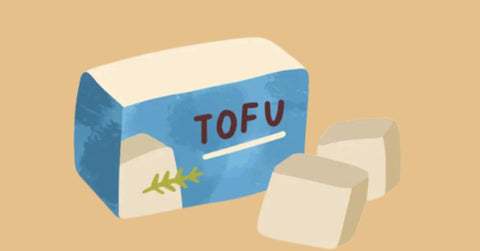
When it comes to plant-based protein, tofu is definitely a superstar! Not only is it versatile and easy to cook with, but it's also packed with essential nutrients that your body needs to thrive. An easy source of calcium, iron, and other nutrients, Tofu is one such product that can be used as an alternative to regular chicken in your diet.
2. It Isn’t Plant-based Chicken:
Speaking of plant-based meat, It Isn’t products have emerged as a sought-after substitute for chicken. From finger-licking good nuggets to mouth-watering kebabs, our options are sure to satisfy your cravings. And the best part? They’re trans-fat-free and have no added sugars! While you are at it, check out It Isn’t products to munch on and complete your read.
3. Quinoa:

4. Oatmeal:
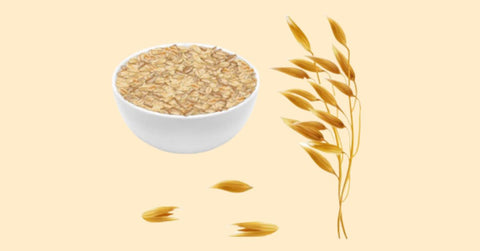
Many of us are already aware of how oatmeal makes a fulfilling and nutritious breakfast. But did you know? Oats are not only a great source of protein but also packed with fiber, vitamins, and minerals that can help keep you feeling energized throughout the day. In fact, just one serving of oatmeal can provide a significant portion of your daily recommended intake of iron and zinc.
5. Nut & Seeds:
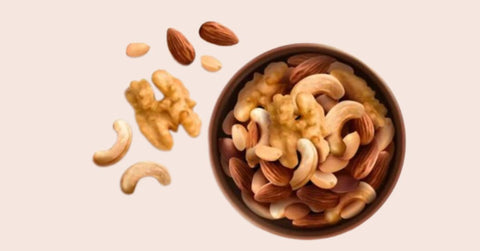
When it comes to getting enough protein, nuts, and seeds can be a real lifesaver! These tasty and nutrient-dense foods, including almonds, cashews, peanuts, and pumpkin seeds, are not only high in protein but also rich in healthy fats and other essential nutrients.
6. Soy Milk:
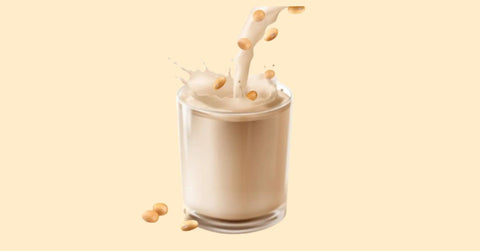
Soy milk is a fantastic option for vegans looking to increase their protein intake. Made from whole soybeans, it’s a great source of plant-based protein that's also low in saturated fat. In addition to its protein content, soy milk is also rich in essential nutrients like calcium and vitamin D, making it a smart choice for overall health and well-being.
7. Tempeh:
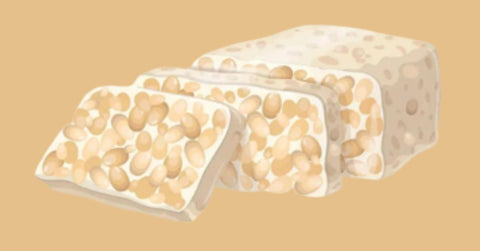
This soy-based product is a complete protein source, meaning it contains all nine essential amino acids that your body needs to function properly. In addition to its high protein content, tempeh is also a good source of fiber, calcium, and other important nutrients, making it a smart addition to any vegan diet.
8. Brown rice:

For those looking to add protein to their diets, brown rice is a great choice! Unlike many other grains, brown rice is a complete protein source, meaning it contains all nine essential amino acids that your body needs to function properly. Additionally, brown rice is high in fiber, which can aid in digestion and help keep you feeling full longer. Be it your biryani, fried rice, or normal steamed rice, making the switch to brown rice will help you maintain your diet and also enjoy your favorite dishes.
9. Nut Butter:
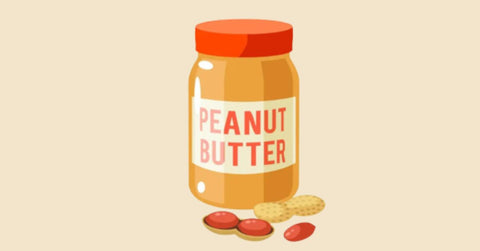
Nut butter like peanut butter, almond butter, and cashew butter is also high in protein and healthy fats. They are great vegan protein substitutes.
10. Seitan:
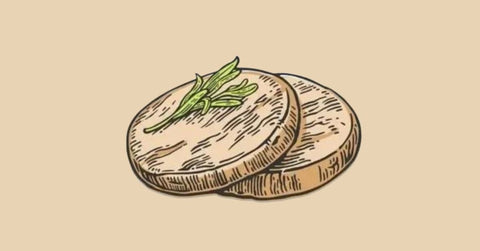
Seitan is a wheat-based product that is high in vegan protein. It's also a good source of iron and other nutrients. Seitan isn't plant-based meat, but it is a great vegan protein substitute.
Lastly, listing high-protein food items is incomplete without mentioning the commonly found lentils (dal). Lentils are not only a staple food in many Indian households but are also an excellent plant-based protein source. They are rich in fiber, iron, and other nutrients. Below mentioned are some of the dal variants that all of us eat but are unaware of their nutrient benefits.
Chickpeas (chana):
Chickpeas are another vegan protein source that is not only delicious but also versatile. Chickpea curry, also known as chana masala, is a popular Indian dish.
Black beans (rajma):
Black beans are a protein-packed plant-based food that is also rich in fiber. They are a great option for vegans who are looking for a filling meal that is both healthy and delicious.
Green peas (matar):
Green peas are a nutritious plant-based food that is a good source of protein and fiber. They are also rich in vitamins and minerals like vitamin C, vitamin K, and manganese.
Benefits of eating Protein rich vegan food:
Eating protein-rich vegan foods has numerous benefits for your health and well-being. Here are some of the benefits:
Helps build and repair tissues:
Protein is a crucial building block for your body's tissues, including your muscles, bones, and skin. Eating enough protein helps your body build and repair these tissues.
Promotes satiety:
Protein-rich foods tend to be more filling than foods high in carbohydrates or fat, which can help you feel fuller for longer and prevent overeating.
Boosts metabolism:
Eating protein can help boost your metabolism, which can aid in weight loss and weight management.
Supports healthy immune function:
Protein is important for maintaining a healthy immune system, as it helps to produce antibodies and other immune system components that fight off infections and illnesses.
Supports brain health:
Some amino acids, which are the building blocks of protein, are essential for healthy brain function. Eating protein-rich foods can help provide these essential amino acids and support cognitive function.
Reduces the risk of chronic diseases:
Consuming protein-rich vegan foods as part of a healthy diet has been associated with a reduced risk of chronic diseases, such as heart disease, diabetes, and certain types of cancer.
Frequently Asked Questions for protein rich vegan food:
Q: Can vegetarians get enough protein without eating meat?
A: Yes, vegetarians can get enough protein by eating a variety of plant-based sources such as lentils, legumes, tofu, tempeh, nuts, and seeds.
Q: How much protein do I need to build muscle on a vegan diet?
A: The amount of protein you need to build muscle on a vegan diet depends on your individual goals and activity level. However, a good rule of thumb is to consume 1 gram of protein per pound of body weight per day.
Q: Is it possible to get all the essential amino acids on a vegan diet?
A: Yes, it is possible to get all the essential amino acids on a vegan diet by consuming a variety of plant-based protein sources such as lentils, legumes, quinoa, and soy products.
Q: Can I meet my protein needs on a vegan diet without relying on supplements?
A: Yes, it is possible to meet your protein needs on a vegan diet without relying on supplements by incorporating a variety of protein-rich plant-based foods into your diet.
Q: Are there any downsides to eating a protein-rich vegan diet?
A: There are no major downsides to eating a protein-rich vegan diet as long as you are consuming a balanced diet that includes a variety of nutrient-dense foods.
Q: Can vegan protein powders be used as a meal replacement?
A: Vegan protein powders can be used as a meal replacement, but it is important to ensure that you are also consuming a variety of other nutrient-dense foods to meet your overall nutritional needs.
We hope this list of 11 protein-rich vegan food in India is helpful in providing alternative meat options. Incase we skipped any, let us know in the comment section below!


Leave a comment
This site is protected by reCAPTCHA and the Google Privacy Policy and Terms of Service apply.